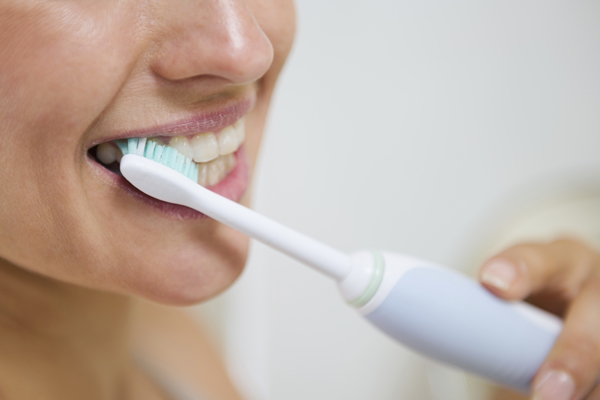That’s one smart toothbrush

How do you know when it’s time to stop brushing? You don’t, according to Ameya Mehendale, who recently graduated from the master’s program in chemical engineering. Instead, he said, you spit out the toothpaste at an arbitrary point in your dental hygiene routine. But with 85 percent of the U.S. population suffering from some form of periodontal disease, we seem to be off in our toothbrush timing.
To combat the quandry, Mehendale came up with an idea for a smart toothbrush while chatting with friends about how engineering solutions can solve real-world problems. Then he had a chance to develop a real plan for the product this spring at the Entrepreneurs Club’s annual Engineers for the Greater Good event.
In collaboration with five other engineering students–Jeff Kent, Esfandiar Keikhosrowzadeh, Samuel Levine, Getao Li, and Dan Shores–Mehendale spent three days holed up in Snell Engineering Center fleshing out the details of the toothbrush. It would work in conjunction with fluorescent toothpaste that adheres to bacteria and glows when shone with certain wavelengths of light. That light would shine from an LED on the smart toothbrush’s head, according to Mehendale, and the fluorescence would be detected with a sensor beside it. When most of the bacteria have been washed away, the fluorescence would cease and a red light on the toothbrush handle would turn green, indicating that brusher’s teeth are clean.

Student Dan Shores designed the toothbrush using Auto CAD. Image courtesy of Sam Levine.
“You could be in your kitchen brushing your teeth. You don’t need to look in the mirror,” Mehendale said. “You don’t see the fluorescence, because it’s detected by the toothbrush.”
During the three-day event, the team members did some market research to see if their solution would be desirable. Then they researched similar technologies in the field and found nothing quite as specific as their device. The young researchers drew up AutoCAD plans for the toothbrush and determined likely market costs. At the end of the event,, team members presented their research to a panel of three judges, including Scott Bailey, director of partnerships at Mass Challenge, who named it the first-place winner.
Backed by $1,500 in prize money to get the project off the ground, Mehendale is eager to take it to the next stage.





